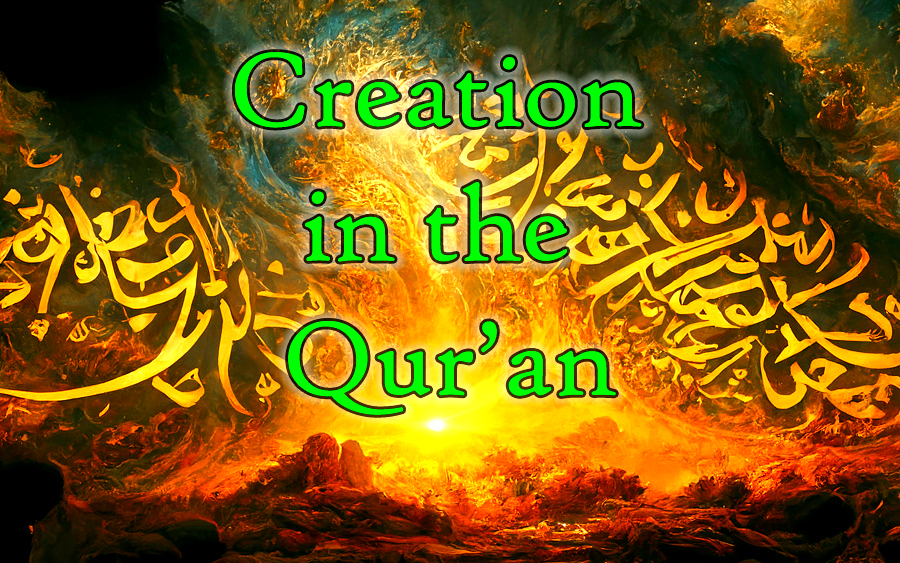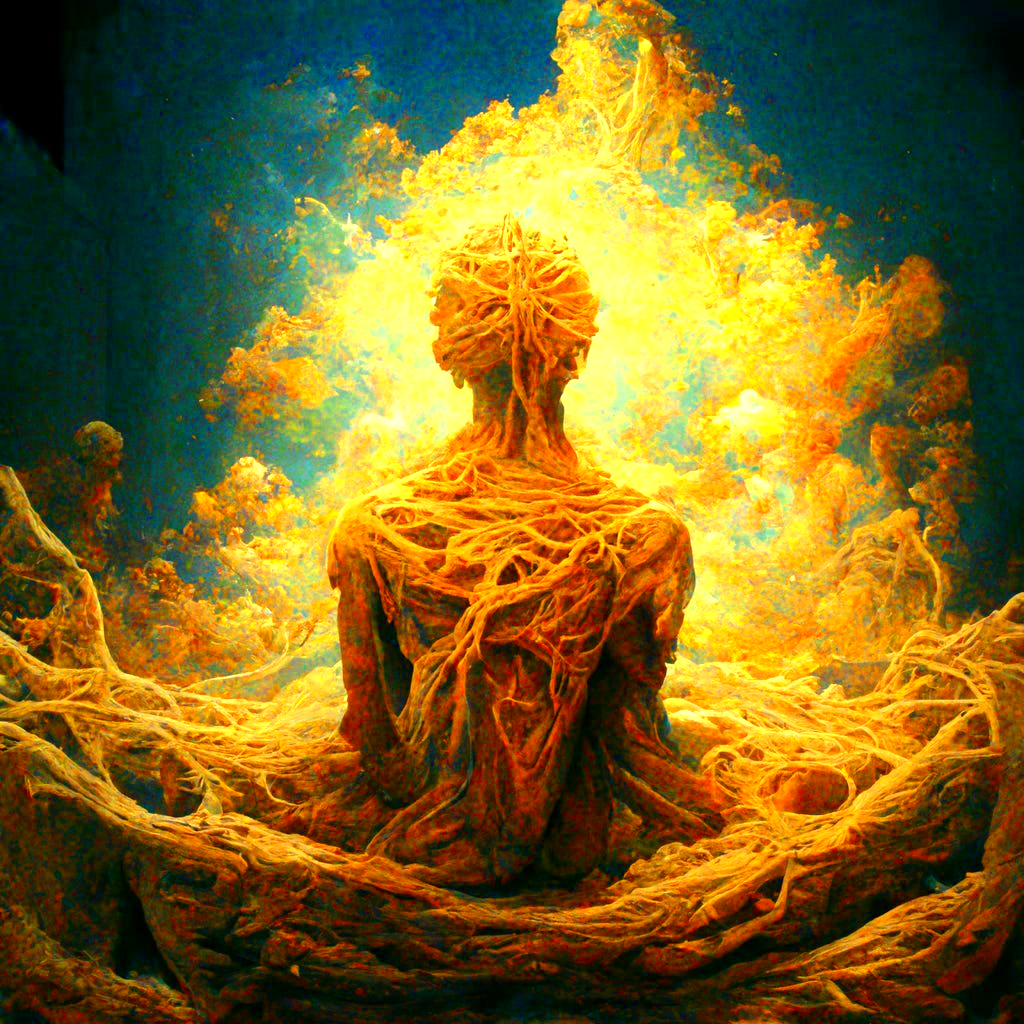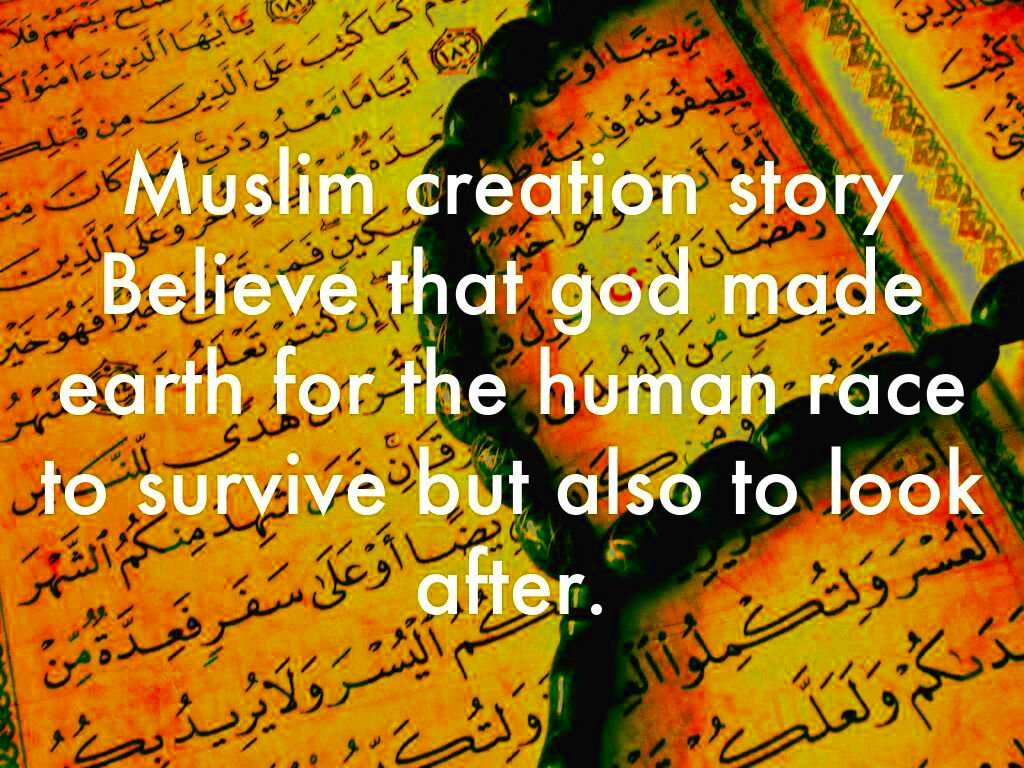When we hear the phrase "being created in the image of God," it often evokes a deep sense of reflection. In many cultures and religious beliefs, this concept carries significant meaning, implying that humans have been fashioned in a way that mirrors the divine. But what does this really mean, especially from the Islamic perspective? The Quran does not state directly that humans are made in the literal "image" of God, as it is understood in some other religious traditions. Instead, it emphasizes the unique qualities granted to humans that reflect God's attributes.
In Islam, the concept of God's image is not physical. Rather, it is spiritual. The Quran teaches that humans have been granted intellect, free will, and the ability to reason—attributes that allow them to recognize God's presence and strive to follow His will. These qualities set humans apart from all other creatures and allow them to understand and reflect God's mercy, wisdom, and knowledge in their actions and choices. This reflection is not about appearance but about the qualities and moral values that humans carry.
What Does the Quran Say About the Image of God?

The Quran does not explicitly mention that humans are created in God's image in the same way it is understood in other faiths. However, it does emphasize that humans were created by God with great care and purpose. One of the key verses that touches on this idea is found in Surah Al-Alaq (96:2), where it says: “Created man from a clot of blood.” This verse indicates the special creation of humankind by God.
In Islam, God’s image is seen as symbolic rather than literal. The Quran presents the relationship between God and human beings as one of guidance, with God providing humanity with the ability to choose between right and wrong. The key takeaway is that human beings are imbued with qualities that enable them to follow the divine path. Some scholars interpret this as a "spiritual image"—not a physical likeness, but the potential to act in a way that reflects God's attributes, such as mercy, justice, and knowledge.
Differences Between Human and Divine Attributes

While humans are created with certain qualities that can reflect God's attributes, there are significant differences between divine and human characteristics. God's attributes are beyond human comprehension, perfect, and infinite. In contrast, human attributes are finite and limited. The Quran makes a clear distinction between the Creator and His creation, emphasizing that nothing in creation is like God (Surah Al-Ikhlas, 112:4). Here are a few key differences:
- God's Knowledge is Infinite: God's knowledge encompasses everything, past, present, and future, whereas human knowledge is limited and ever-evolving.
- God is Perfect and Unchanging: God's essence remains perfect and unchanging, while humans are imperfect beings subject to change, growth, and development.
- God's Power is Absolute: While humans have the ability to act, their power is finite. God's power, however, is limitless and extends beyond all boundaries.
- Humans Have Free Will: Unlike God, who is omnipotent and all-knowing, humans have free will, allowing them to make choices, whether good or bad. This is a key aspect of being created with the potential to reflect divine qualities.
Thus, while humans have qualities that allow them to reflect certain divine attributes, these attributes are always limited in comparison to the infinite nature of God.
The Significance of Humans Reflecting God's Qualities

In Islam, humans are seen as God's representatives on Earth, endowed with unique qualities that reflect the divine. The idea of reflecting God's qualities isn't about physical resemblance but about embodying divine attributes in our actions, character, and intentions. Humans are encouraged to mirror God's mercy, justice, wisdom, and kindness through their own behavior and decisions. This spiritual connection forms the basis of human dignity and responsibility, positioning people as caretakers of the Earth, tasked with maintaining balance and harmony in the world.
The significance of reflecting God's qualities goes beyond mere imitation. It is about striving to live according to divine principles. For example, the Quran teaches that God is the Most Merciful (Ar-Rahman) and the Most Compassionate (Ar-Raheem), qualities that humans should aim to embody in their interactions with others. By practicing these divine attributes, humans fulfill their role as God's stewards, promoting peace and justice in society. This process is not about perfection but about striving to align one's actions with higher moral standards, understanding that God's mercy is vast enough to embrace human flaws.
Reflecting these qualities helps humans lead purposeful lives, creating a deeper connection with God and contributing positively to the community. This understanding encourages humility, as people realize that these divine attributes are a gift to be honored and nurtured, not a source of pride. Ultimately, reflecting God's qualities is an ongoing journey of personal growth and spiritual development.
What the Quran Teaches About Human Dignity
The Quran strongly emphasizes the inherent dignity of human beings. Every individual is created with honor and purpose, and this sense of dignity is central to the teachings of Islam. One of the most powerful verses about human dignity is in Surah Al-Isra (17:70), which states: “We have certainly honored the children of Adam.” This honor is not dependent on a person's status, wealth, or abilities but is intrinsic to being human.
Human dignity in the Quran is closely tied to the concept of free will. The ability to choose between right and wrong is a divine gift that enables humans to live righteous lives. It is through exercising this free will that humans fulfill their purpose on Earth, which is to worship God and live in a manner that reflects His attributes.
The Quran teaches that human dignity should be preserved at all costs. Whether it's through the fair treatment of others, respect for individual rights, or ensuring justice and equity in society, the Quran emphasizes that all human beings deserve respect and should be treated with kindness and compassion. This perspective challenges us to rise above prejudice and oppression, focusing instead on the shared dignity of all people, regardless of race, gender, or social standing.
Moreover, human dignity is a foundational principle in Islamic law (Sharia), which provides guidelines for ethical behavior, justice, and care for others. The Quran's teachings on human dignity call for a world where people are treated with fairness and given the opportunity to thrive in accordance with their God-given potential.
Interpreting the Metaphor of the Divine Image
The concept of the "divine image" in the Quran is often seen as a metaphor, not a literal description. This metaphor reflects the spiritual and moral qualities that humans possess, which are believed to echo the divine. However, there is no direct comparison between human and divine forms. Instead, the Quran invites believers to understand the metaphor in terms of the qualities bestowed upon humanity, such as knowledge, intellect, and the ability to distinguish between good and evil.
Interpreting this metaphor requires recognizing that while humans are created with the potential to reflect God’s attributes, this does not mean that humans share God’s essence. God's attributes are perfect and infinite, while human qualities are finite and imperfect. The metaphor highlights the relationship between humanity and God, where humans are seen as His vicegerents on Earth, responsible for upholding His will and spreading His message of mercy, justice, and truth.
In this light, the metaphor of the divine image can be understood as a reminder of the responsibilities and opportunities humans have in their spiritual journey. By reflecting the divine qualities of kindness, wisdom, and justice, humans can grow closer to God. But this should not be mistaken for the idea that humans can fully embody God's perfection. Rather, it is about striving to reflect divine values in our lives, knowing that this is a lifelong process.
The metaphor also encourages humility. It calls for recognition that, while we may reflect some of God's qualities, we are always dependent on His guidance and mercy. This understanding should inspire a humble approach to life, where one is always aware of their limitations and the vastness of God's power and grace.
How Islamic Teachings Relate to the Idea of Divine Representation
In Islam, the concept of divine representation is not about physical resemblance but about embodying the qualities and characteristics that reflect God’s will. The Quran teaches that human beings are the caretakers of the Earth, and through this role, they are expected to uphold the values of justice, mercy, and truth—attributes that are central to God's nature. Unlike other traditions that may suggest humans are a direct image of God, Islamic teachings focus more on the moral and spiritual aspects of this "representation."
One of the key teachings in Islam is that humans were created to worship and serve God, but also to act as vicegerents (stewards) on Earth. This role of stewardship is central to understanding the Islamic view of divine representation. By following the guidance of the Quran and Hadith (sayings of the Prophet Muhammad), Muslims strive to live in a way that reflects God's wisdom and mercy in their daily lives. This representation is not about imitation but about living with purpose, guided by ethical values.
Additionally, Islam teaches that God's qualities are beyond human comprehension, but humans are encouraged to emulate certain divine attributes as much as possible. For instance, the Quran repeatedly calls for the practice of forgiveness, kindness, and patience—qualities that are often described as manifestations of God's mercy. Thus, while humans cannot fully embody God's essence, they are tasked with reflecting His divine qualities in their interactions with others and in their efforts to create a just and harmonious society.
Ultimately, Islamic teachings suggest that divine representation is about striving to live according to God's will and using the gifts He has given us to benefit the world around us, while acknowledging that true perfection belongs only to God.
Conclusion
The concept of being created in the image of God in Islam is more about embodying divine attributes than resembling God physically. The Quran teaches that humans are honored by being endowed with qualities such as intellect, free will, and the ability to reflect on their actions. These qualities allow humans to strive toward a life that mirrors God's mercy, justice, and wisdom. However, this reflection is not perfect and is always limited compared to God's infinite nature.
Human dignity, as highlighted in the Quran, is a key element in understanding the significance of this divine representation. Humans are seen as the caretakers of the Earth, tasked with maintaining justice and balance by reflecting divine values. By living in a way that reflects God's qualities, humans fulfill their role as God's vicegerents on Earth. This understanding invites humility, as humans recognize their limitations and rely on God's guidance and mercy to navigate life.
In conclusion, while Islam does not teach that humans are literally made in the image of God, it emphasizes the spiritual and moral qualities that humans can reflect. This metaphorical "image" is about reflecting divine attributes in our lives and using these qualities to contribute to the greater good of humanity. By embracing these teachings, individuals can live with purpose and strive to uphold justice, mercy, and righteousness in all aspects of their lives.
FAQ
1. Does Islam believe humans are made in God's image?
Islam teaches that humans are not made in God's physical image, but are created with qualities that allow them to reflect God's attributes such as mercy, wisdom, and justice. The concept of "image" in Islam is more spiritual and moral than physical.
2. What is the role of humans in Islam?
In Islam, humans are viewed as vicegerents or stewards on Earth. They are tasked with maintaining balance, justice, and harmony in the world by reflecting God's values through their actions and decisions.
3. How can humans reflect God's qualities?
Humans can reflect God's qualities by practicing values such as kindness, patience, mercy, and justice in their daily lives. The Quran and Hadith guide Muslims on how to live according to these divine attributes, aiming to reflect them in interactions with others.
4. What does the Quran say about human dignity?
The Quran teaches that all humans are created with dignity, as stated in Surah Al-Isra (17:70). This dignity is intrinsic and not based on social status, and every person has the right to be treated with respect, kindness, and fairness.
5. Is there a connection between the image of God and human dignity in Islam?
Yes, the concept of reflecting God's attributes is tied to human dignity. By embodying qualities such as mercy, justice, and compassion, humans fulfill their role as stewards on Earth, and their inherent dignity is preserved through these actions.

 admin
admin








